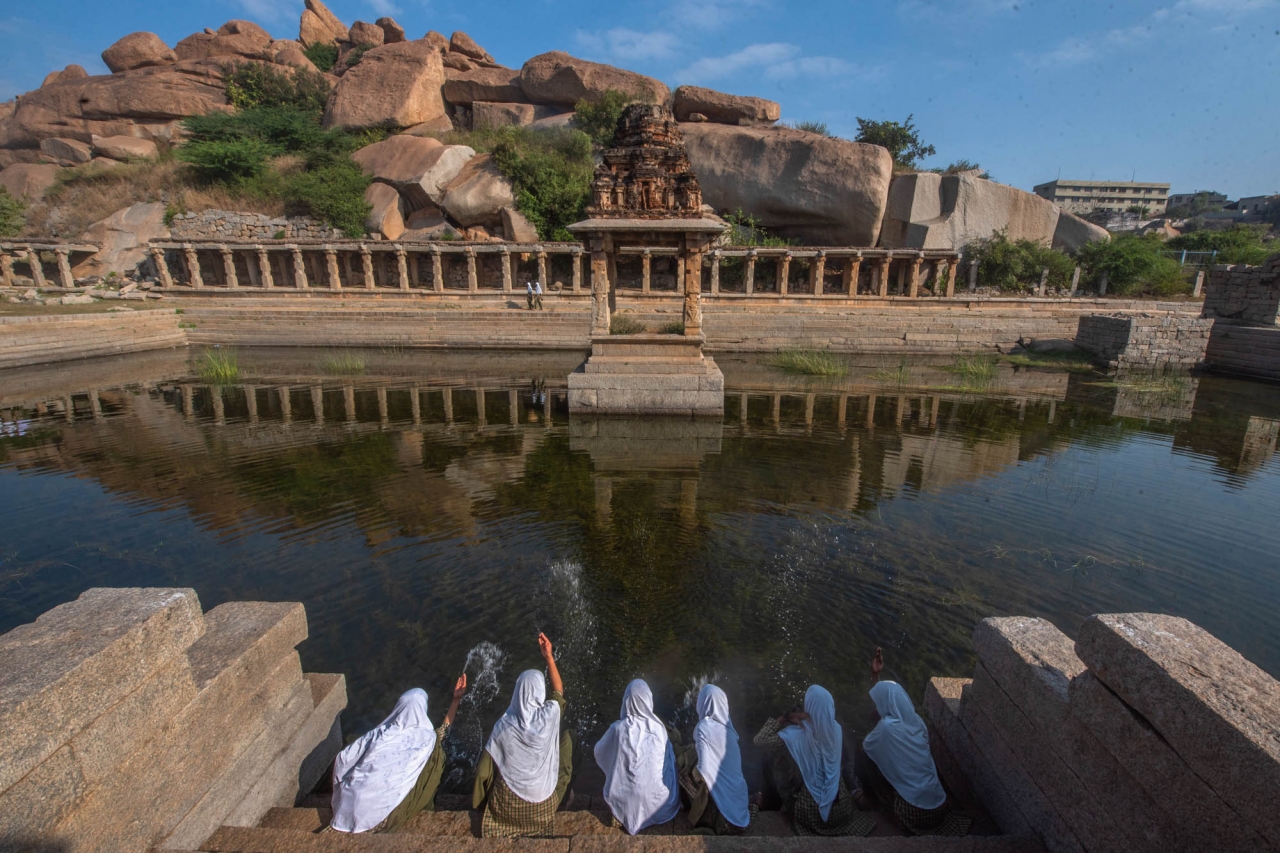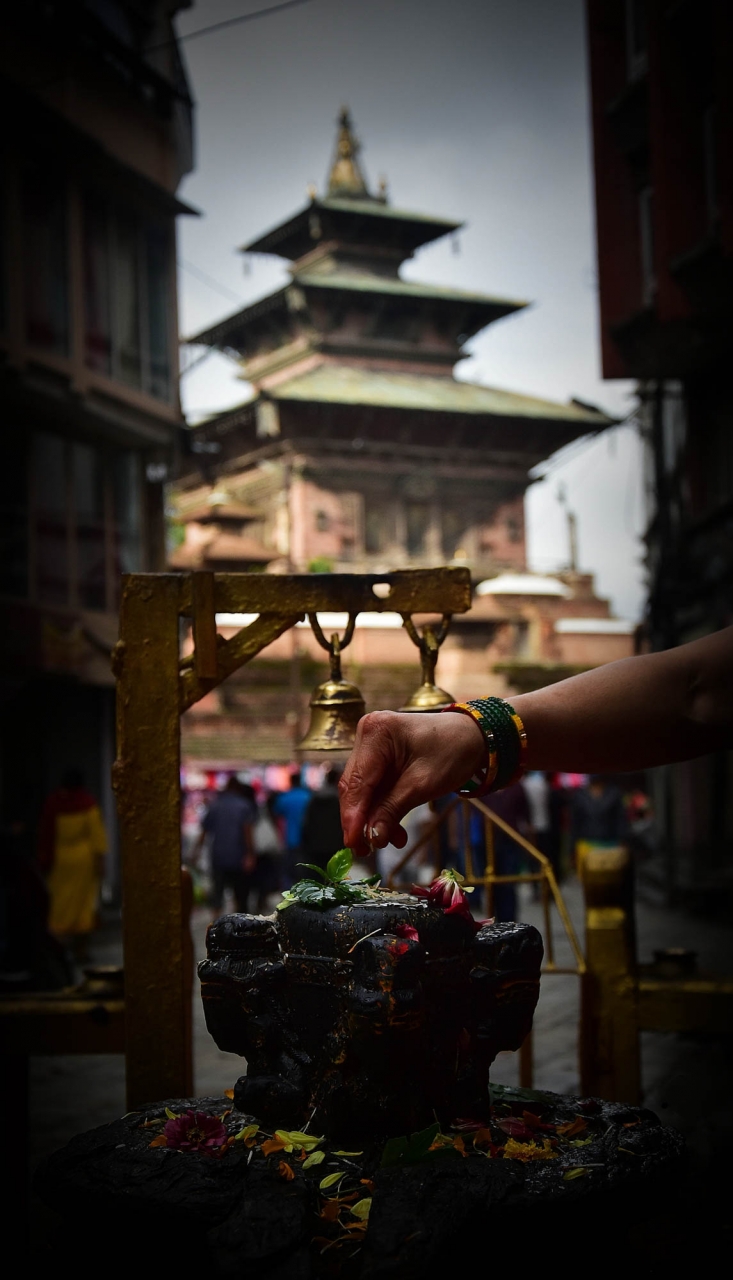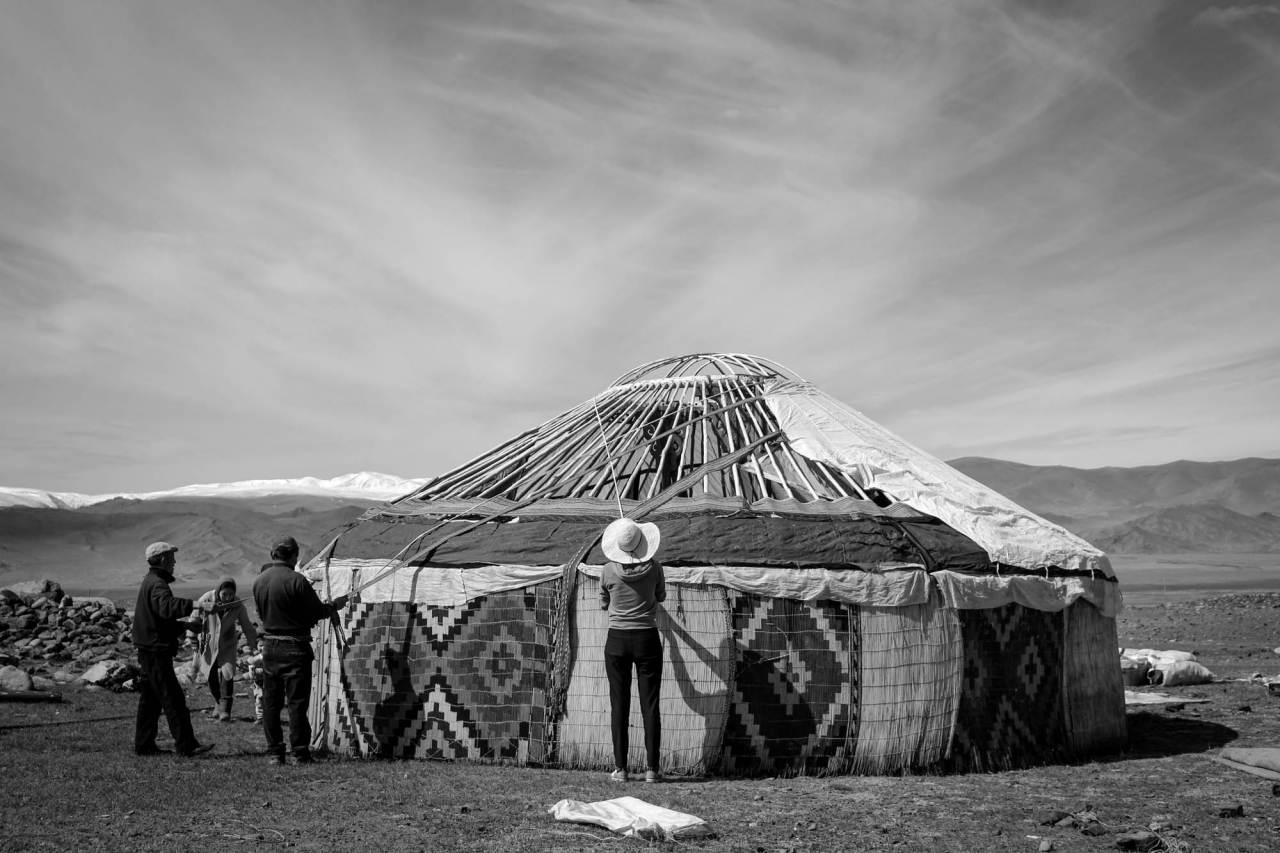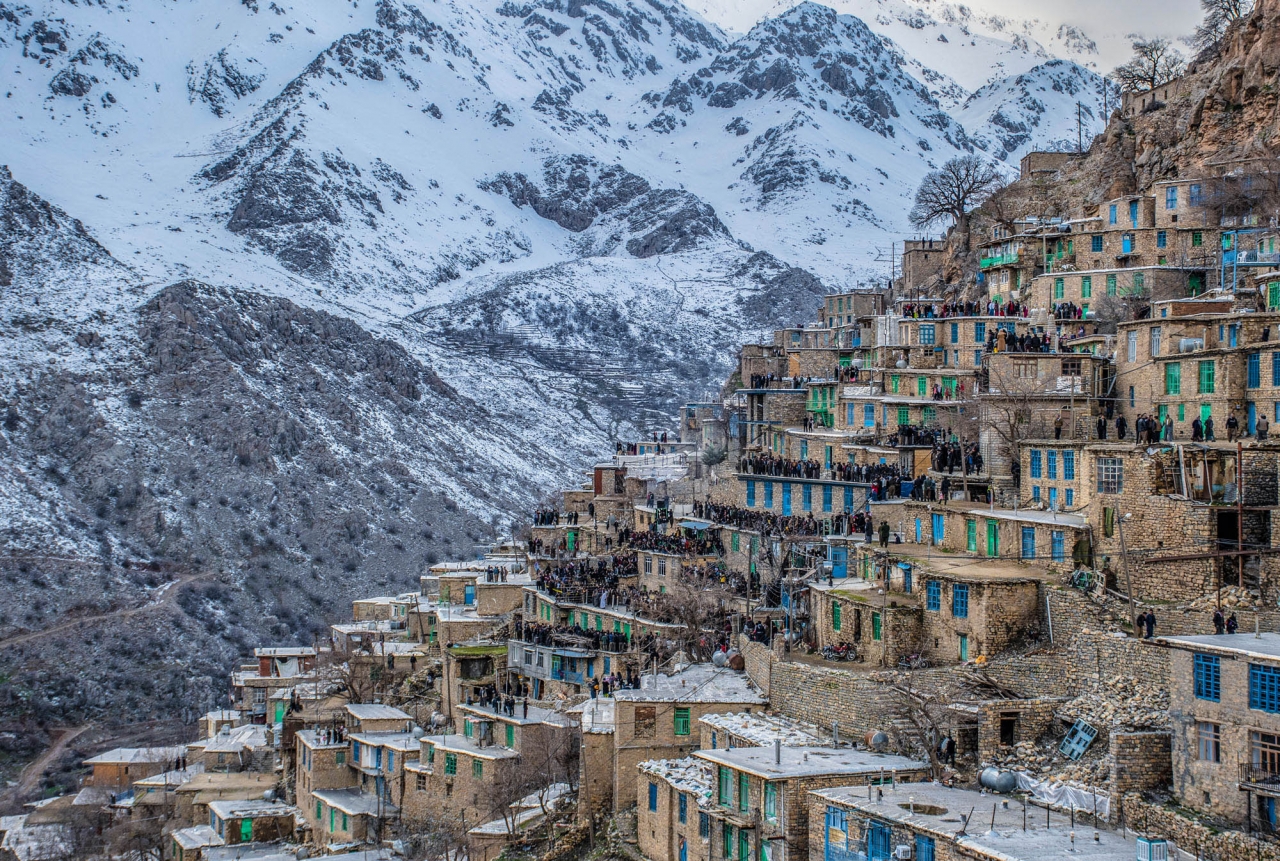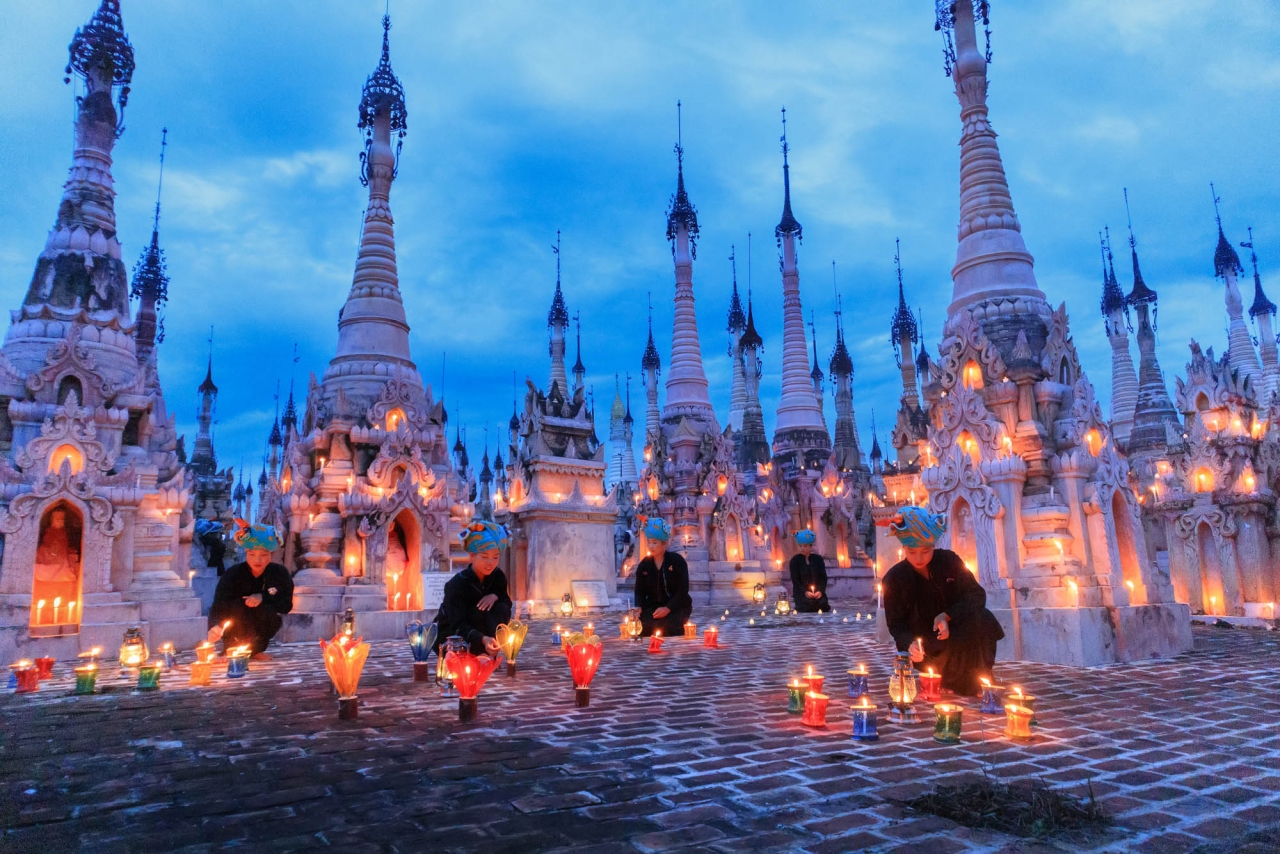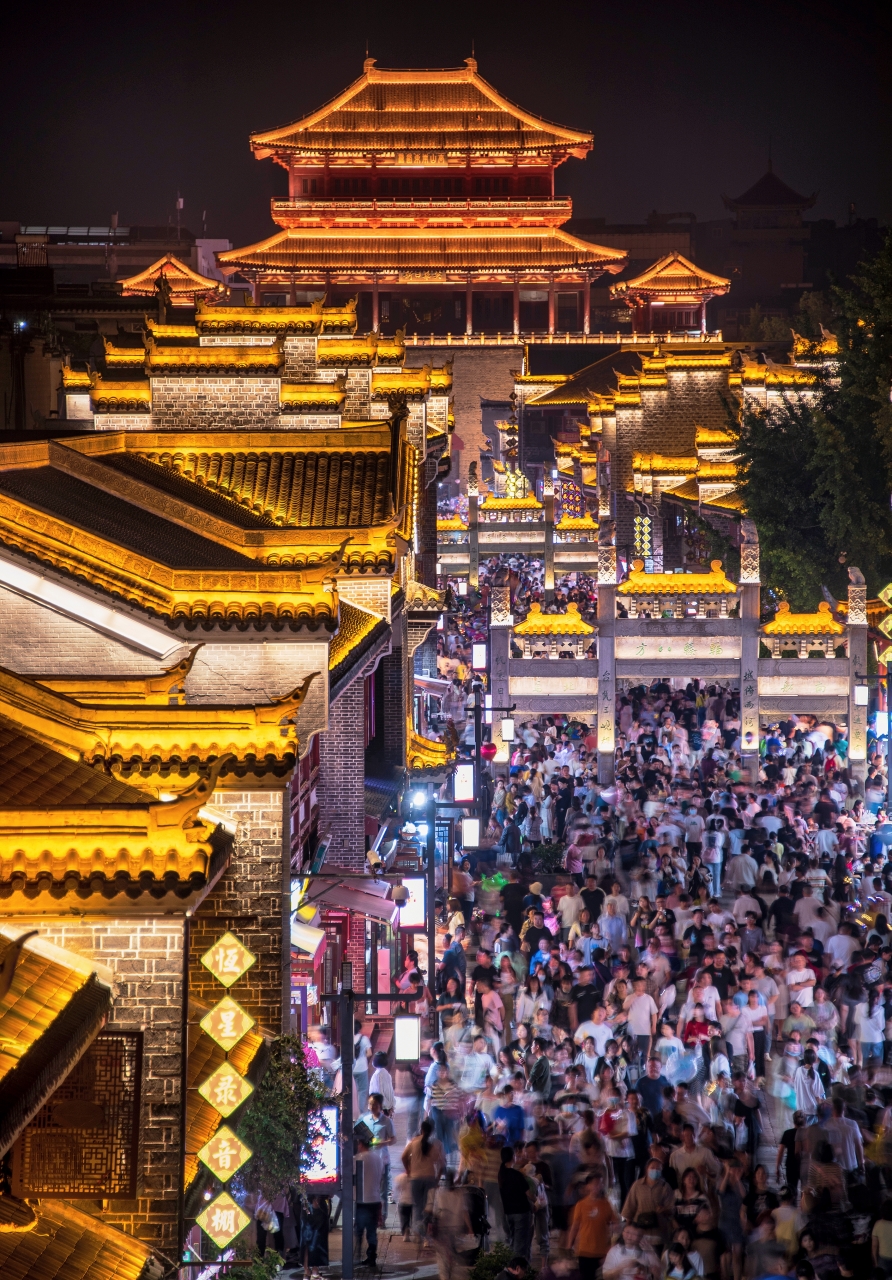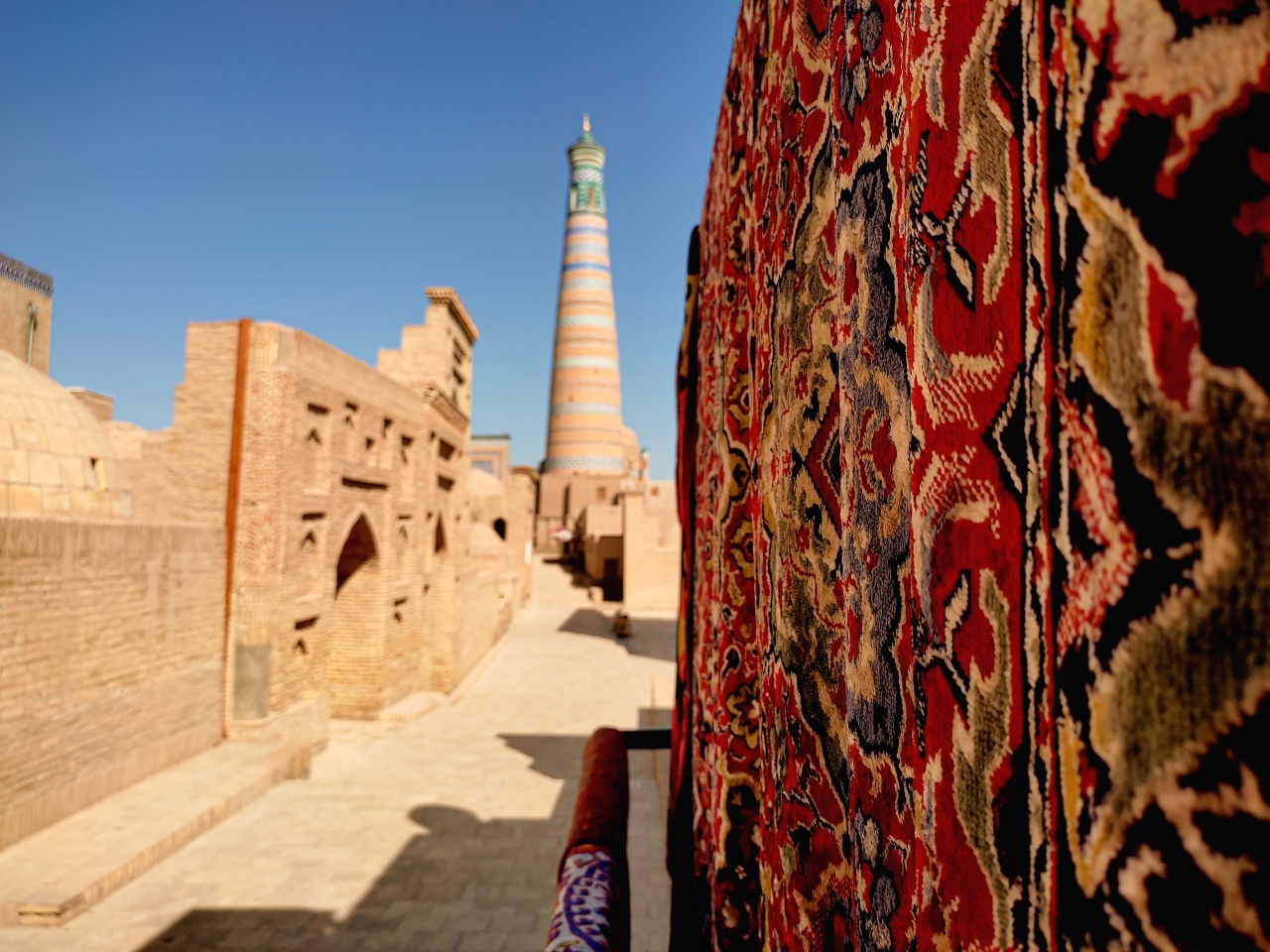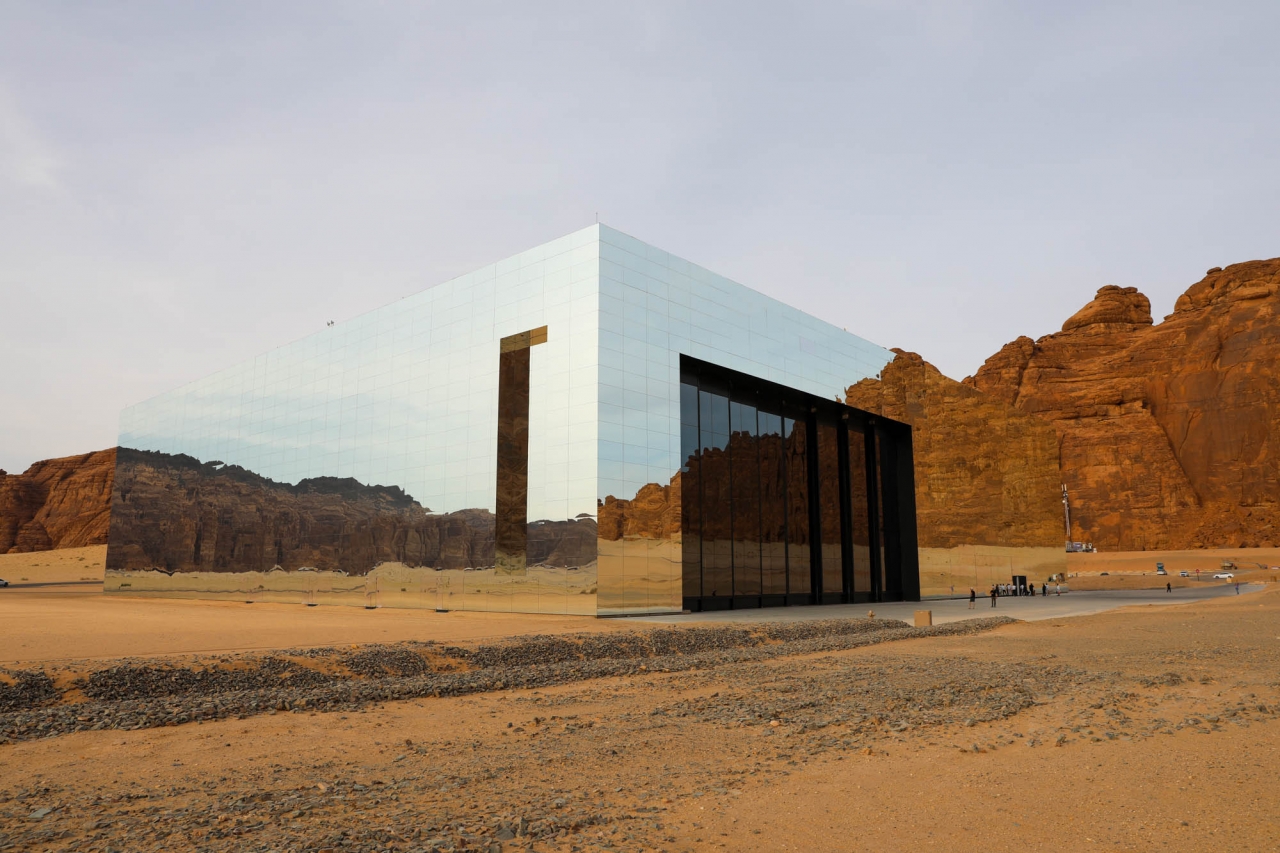Discover the Winners of the 5th edition of the UNESCO Youth Eyes on the Silk Roads Photo Contest
©Baset Mahmoudi / UNESCO Youth Eyes on the Silk RoadsUNESCO is delighted to announce the winners of the fifth edition of the international photo contest "Youth Eyes on the Silk Roads". This contest is organized within the framework of the UNESCO Silk Roads Programme of the Social and Human Sciences Sector. It presents an exciting opportunity for young people from across the globe to capture their understanding of the shared heritage of the Silk Roads through the lens of their camera. In this edition, participants were invited to ‘reveal the Silk Roads’ by focusing on the theme of “Architecture, Monuments, and Urbanism”.
Open for entries from from 5 June to 5 August 2023; the contest received more than 6,700 photographs from young participants worldwide. An international Selection Committee of six renowned professionals carefully examined the submissions before selecting.
The contest is divided into two age categories: 14-17-year-olds and 18-25-year-olds, with three winners and three honourable mentions selected from each age category.
LOOK AT THE WINNERS GALLERY HERE
The contest winners are:
Winners Category 1: 14-17 years old
1st Prize
Anushka Patil
India, 14 years old
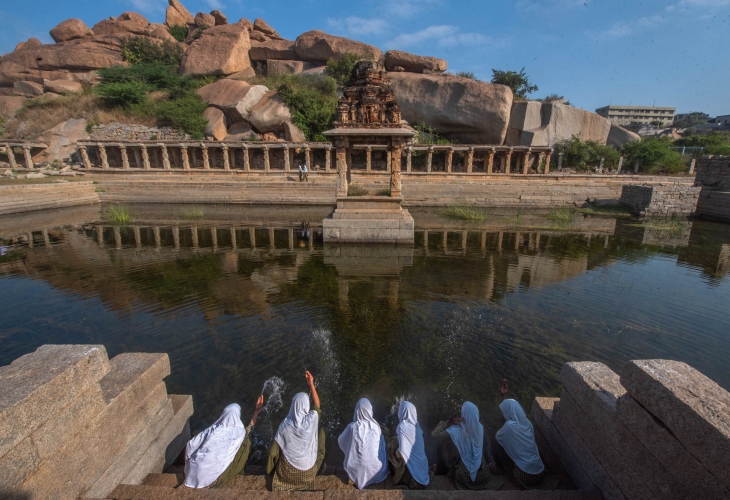
"Shreekrushn Pushkarni, Hampi, India"
Hampi, a UNESCO World Heritage site in Central Karnataka, encompasses the remnants of the capital city of the Vijayanagara Empire (14th-16th century CE) in an area of 4,187.24 hectares. Sacred tanks, or Pushkaranis, attached to temples are significant despite many being in ruins. The restored Pushkarani at Courtesans' Street showcases its historical architecture. Sacred pools varying in size and complexity, usually associated with religious practices, such as ritual ablutions, water offerings, purification ceremonies, or devotional baths are common in religious complexes across the Silk Roads.
2nd Prize
Athah Malla
Nepal, 16 years old
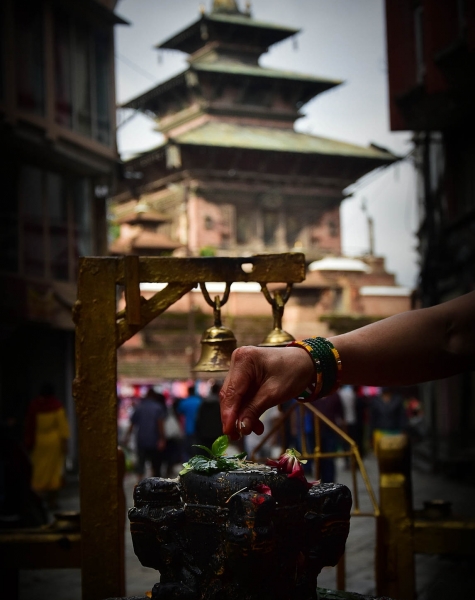
"Worshipping of a stone sculpture in the form of Shivalinga in Nepal"
A female devotee commencing morning rituals on a Shivalinga sculpture in a busy street in Makhan Tol, Kathmandu with the background of Taleju Bhawani Temple located in the UNESCO World Heritage Site of Kathmandu Durbar Square.
3rd Prize
Akhjol Khainar
Mongolia, 16 years old
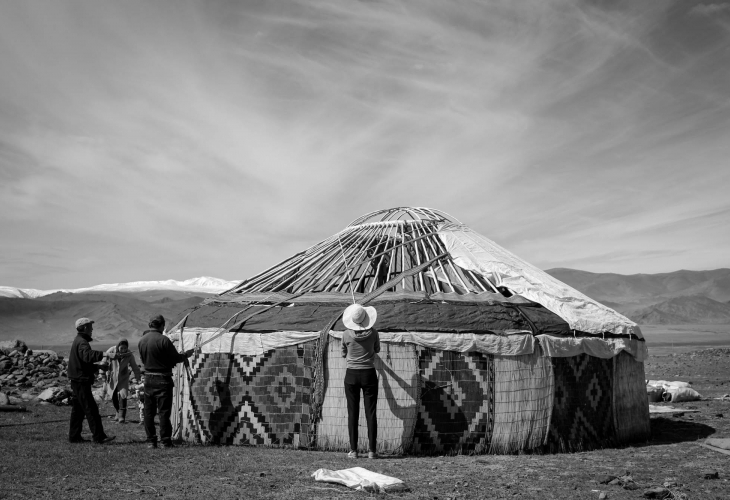
"Nomadic Lifestyle with Yurts, Mongolia"
Nomadic people have a rich history of seasonal migrations. Along the Silk Roads, their portable yurts were particularly well-suited for travellers, providing comfortable and efficient shelter during their journeys. I took this picture when my grandparents moved to the countryside in Bayan-Ölgii Province, Mongolia, while my relatives helped construct the traditional Kazakh movable house known as the ‘Kigiz ui’. The yurt is an iconic nomadic dwelling, a symbol of family and traditional hospitality. Moreover, the traditional knowledge and skills in making Kyrgyz and Kazakh yurts have been inscribed onto the Intangible Cultural Heritage list and passed down through generations among people living along the Silk Roads.
Winners Category 2: 18-25 years old
1st Prize
Baset Mahmoudi
Iran (Islamic Republic of), 25 years old
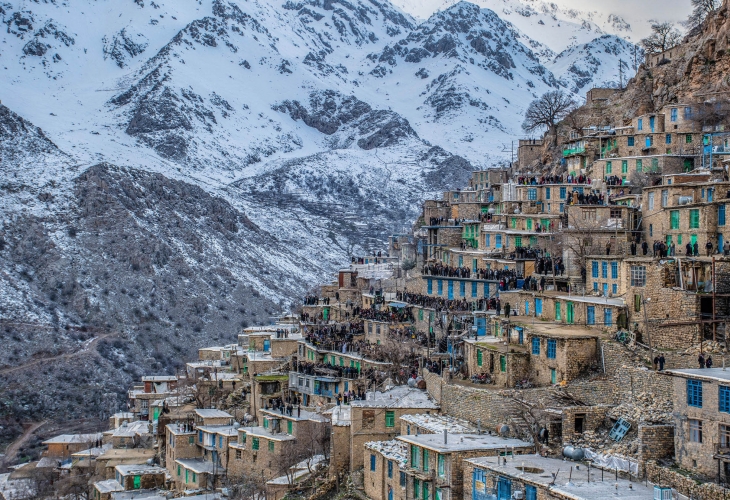
"Over the Mountains, Iran"
Hawraman Village in the Kurdistan region, Iran, boasts distinctive stone houses, arranged like stairs, where one roof becomes another’s courtyard. The village enjoys pleasant spring and summer weather but turns cold in winter, making it a captivating rural spot. The architecture of these houses on the mountain shows an ancestral understanding of the landscape and a thoughtful selection of materials.
2nd Prize
Nay Lin Htun
Myanmar, 21 years old
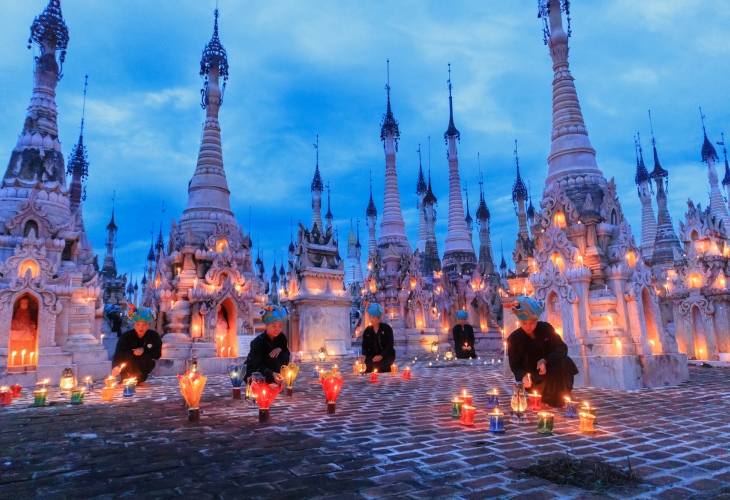
"Light Between Temples, Myanmar"
In Myanmar's "Festival of Lights", Kakku Pagoda shines with countless candles, and Pa-O women illuminate their heritage. This photo embodies the Silk Roads’ essence, where diverse traditions unite. The Kakku Pagoda Festival reflects the Silk Roads' lasting legacy, connecting us through shared heritage.
3rd Prize
Kong Lingkun
China, 21 years old
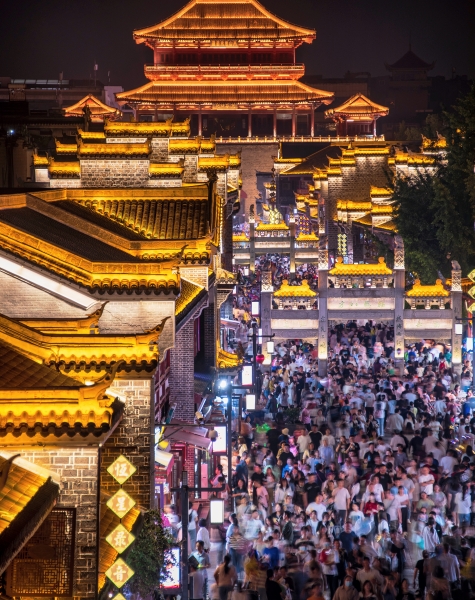
"The ancient prosperous capital, Xiangyang, China"
This photo was captured in May 2023, within the surroundings of Xiangyang, located in Hubei Province, China. Xiangyang Ancient City holds a distinguished place in Chinese history, renowned for its remarkable architectural defence system. It stands as China's most well-preserved ancient city defence structure, boasting a rich history spanning over 2,800 years.
In addition, two honourable mentions are selected per category:
Honourable Mentions Category 1: 14-17 years old
Honourable Mention 1
Sabohat Baxtiyarova
Uzbekistan, 17 years old
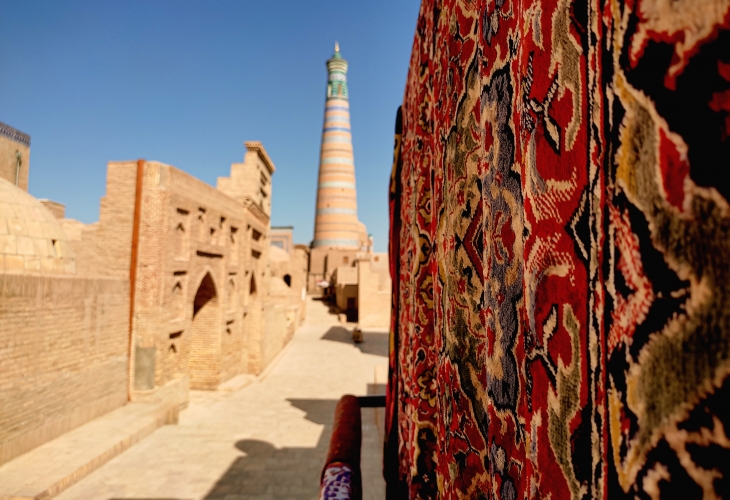
"A Mysterious Walk in Khiva, Uzbekistan"
Within the UNESCO World Heritage Site of Khiva's Itchan Kala, the Mausoleum of Pahlavon Mahmud stands as a tribute to Central Asian Muslim architecture. Amidst its historic walls, a remarkable silk carpet, meticulously woven with intricate patterns, takes centre stage. This exquisite carpet reflects the region's rich heritage and is a captivating testament to the artistry and craftsmanship of the past along the Silk Roads. The Minarets are towers commonly associated with places of worship, and serve several important purposes, including announcing calls to prayer and broadcasting other announcements. This is an example of an ancient minaret used for these purposes.
Honourable Mention 2
Audric Vitangcol
Philippines, 17 years old
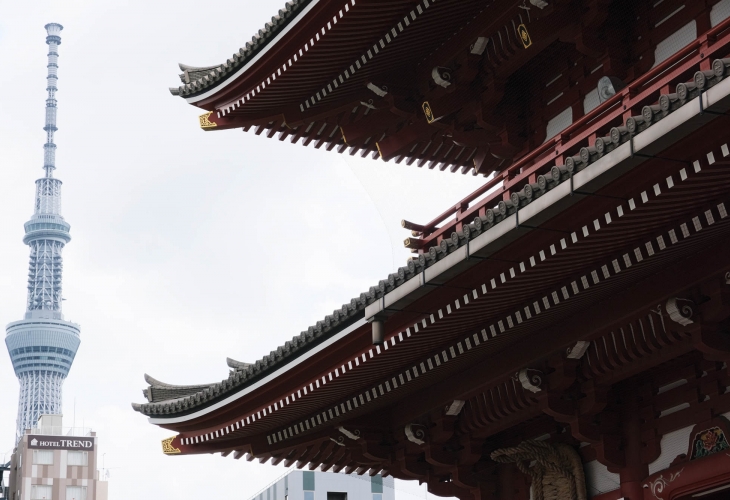
"Sensō-ji-Skytree: “Old Meets New”, Tokyo, Japan"
The Sensō-ji Temple, a prime example of ancient Japanese architecture, stands in juxtaposition to the modern wonder of the Tokyo Skytree. It embodies Tokyo's motto, "old meets new," and reflects Japan's enduring capacity for innovation and tradition. As a Filipino visitor in the hot summer of July 2023, it evoked a warm, enlightening feeling, deepening my appreciation for the Silk Roads and the wonders of our world.
Honourable Mentions Category 2: 18-25 years old
Honourable Mention 1
Safia Southey
United States of America, 25 years old
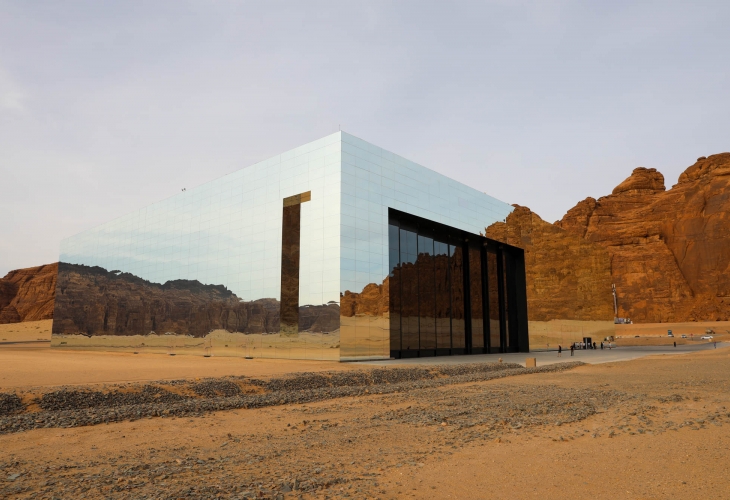
"Maraya, AlUla, Saudi Arabia"
Maraya, a breathtaking fusion of architecture and nature, nestled within Ashar Valley's desert canyon. This building gracefully merges with its surroundings, materializing from the sands to harmonize with nature's beauty. The modernity of this building is used as a gate of entry to the historical Nabataean site of AlUla in the desert of Saudi Arabia. Across the Silk Roads, architects and planners used tools such as water and mirrors to add reflection and depth to their building structures.
Honourable Mention 2
Nodira Juraeva
Uzbekistan, 23 years old
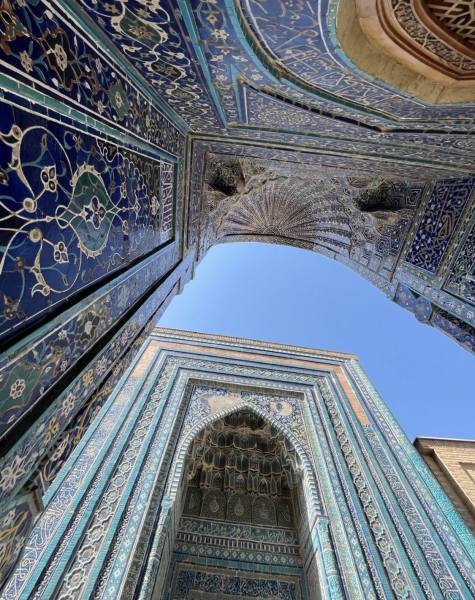
"Beauty is in the Details, Samarkand, Uzbekistan"
Shakhi Zinda, nestled in the heart of Samarkand, Uzbekistan, a key stop on the Great Silk Road, embodies the 14th-15th century's beauty and spirit with profound symbolism, contributing to Samarkand’s UNESCO World Heritage status, encompassing not just iconic structures like Registan Square and Bibi Khanum Mosque, but the entire historic town from the 13th Century onwards. In art and architecture, the use of mosaic with a familiar shape and colour, often blue, is spread in many regions across the Silk Roads including, Afghanistan, Iran, Tajikistan and Uzbekistan.
The upcoming photo album, "Youth Lens on the Silk Roads”, will feature the winning photographs along with a selection of the contest's best entries. There is also a possibility that these photos will be showcased in an exhibition.
UNESCO extends its warm congratulations to the winners and expresses gratitude to everyone who took part in this year's contest!
See also:
Official Website of the Youth Eyes on the Silk Roads Photo Contest
Contact: SilkRoadsPhotoContest@unesco.org
